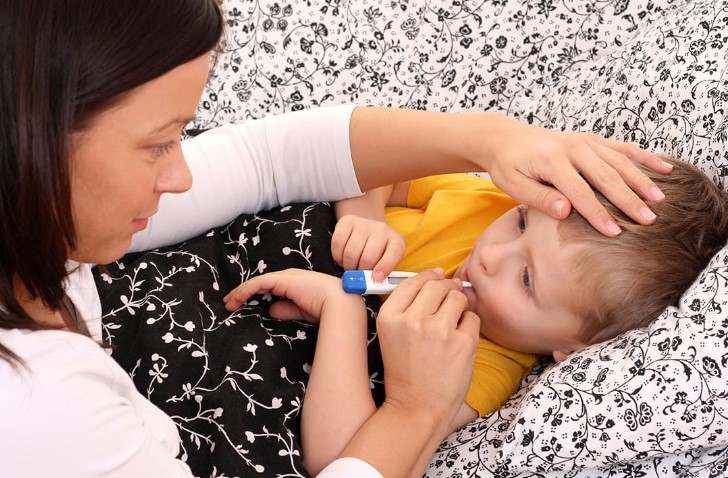
Childhood Illnesses
Introduction
Childhood is a time of exploration, growth, and, unfortunately, frequent illnesses. Understanding the various illnesses that commonly affect children can help parents and caregivers manage and prevent them effectively. From viral infections to chronic conditions, being informed is the first step in ensuring a child’s health and well-being.
Common Childhood Illnesses
Colds and Flu
Colds and flu are among the most common illnesses in children.
Symptoms
Typical symptoms include a runny nose, coughing, sneezing, and sometimes a fever. The flu can be more severe, with higher fevers, body aches, and fatigue.
Treatment
Treatment primarily involves rest, fluids, and over-the-counter medications to relieve symptoms. In some cases, antiviral medications may be prescribed for the flu.
Ear Infections
Ear infections are another frequent issue in children.
Causes
They often follow a cold or respiratory infection and are caused by bacteria or viruses.
Symptoms
Symptoms include ear pain, trouble hearing, and sometimes fever.
Treatment
Treatment can range from pain management with over-the-counter pain relievers to antibiotics if the infection is bacterial.
Strep Throat
Strep throat is a bacterial infection that needs medical attention.
Symptoms
Symptoms include a sore throat, difficulty swallowing, and fever.
Diagnosis
A rapid strep test or throat culture is used to diagnose it.
Treatment
Antibiotics are necessary to treat strep throat and prevent complications.
Viral Infections
Chickenpox
Chickenpox is highly contagious but preventable through vaccination.
Symptoms
Symptoms include an itchy rash, fever, and fatigue.
Vaccination
The chickenpox vaccine is highly effective and recommended for all children.
Measles
Measles is a serious viral infection preventable by vaccination.
Symptoms
Symptoms include a high fever, cough, runny nose, and a characteristic rash.
Vaccination
The MMR (measles, mumps, and rubella) vaccine is crucial in preventing measles.
Hand, Foot, and Mouth Disease
Hand, foot, and mouth disease is common in young children.
Symptoms
It causes sores in the mouth and a rash on the hands and feet.
Prevention
Good hygiene practices, like frequent handwashing, can help prevent its spread.
Bacterial Infections
Whooping Cough
Whooping cough, or pertussis, is a highly contagious bacterial disease.
Symptoms
It starts with cold-like symptoms and progresses to severe coughing fits.
Vaccination
The DTaP vaccine protects against whooping cough, diphtheria, and tetanus.
Scarlet Fever
Scarlet fever arises from a strep throat infection.
Symptoms
Symptoms include a red rash, high fever, and sore throat.
Treatment
Antibiotics are effective in treating scarlet fever.
Common Childhood Diseases
Asthma
Asthma is a chronic condition that affects the airways.
Symptoms
Symptoms include wheezing, shortness of breath, and coughing, especially at night or during exercise.
Management
Management includes avoiding triggers, using inhalers, and taking medications as prescribed.
Allergies
Allergies are common in children and can range from mild to severe.
Types
Common allergens include pollen, dust mites, pet dander, and certain foods.
Management
Management involves avoiding allergens, using medications, and in some cases, allergy shots.
Gastrointestinal Illnesses
Gastroenteritis
Gastroenteritis, often called the stomach flu, is an infection of the intestines.
Symptoms
Symptoms include diarrhea, vomiting, and stomach pain.
Treatment
Treatment focuses on staying hydrated and resting. Severe cases may require medical attention.
Constipation
Constipation is common but can be distressing.
Causes
It can be caused by diet, lack of exercise, or underlying medical conditions.
Prevention and Treatment
Ensure a diet rich in fiber, encourage regular physical activity, and consult a doctor if it persists.
Skin Conditions
Eczema
Eczema, or atopic dermatitis, causes itchy and inflamed skin.
Symptoms
Symptoms include dry, itchy skin and red patches.
Treatment
Treatment involves moisturizing the skin, avoiding triggers, and using prescribed medications.
Impetigo
Impetigo is a contagious skin infection.
Symptoms
It appears as red sores that quickly rupture, ooze for a few days, then form a yellow-brown crust.
Treatment
Antibiotic ointments or oral antibiotics are used to treat impetigo.
Childhood Illness Prevention
Vaccinations
Importance
Vaccinations are essential in preventing many serious illnesses.
Schedule
Follow the vaccination schedule recommended by your healthcare provider.
Hygiene Practices
Handwashing
Encourage regular handwashing with soap and water.
Clean Environment
Keep your child’s environment clean to reduce the risk of infections.
Healthy Lifestyle
Nutrition
Provide a balanced diet rich in fruits, vegetables, and whole grains.
Physical Activity
Encourage regular physical activity to boost the immune system.
When to See a Doctor
Warning Signs
Look out for signs like high fever, difficulty breathing, persistent pain, or unusual behavior.
Importance of Timely Medical Intervention
Early intervention can prevent complications and ensure a quicker recovery.
Conclusion
Understanding and managing childhood illnesses can be challenging, but it is crucial for the health and well-being of your child. By being informed, maintaining good hygiene, ensuring proper nutrition, and keeping up with vaccinations, you can significantly reduce the risk of illnesses. Always consult with healthcare professionals when in doubt, and remember that prevention is better than cure.
FAQs
What are the most common childhood illnesses?
The most common childhood illnesses include colds, flu, ear infections, strep throat, and viral infections like chickenpox and measles.
How can I prevent my child from getting sick?
Preventing illness involves regular handwashing, maintaining a clean environment, ensuring proper nutrition, and keeping up with vaccinations.
What should I do if my child has a fever?
If your child has a fever, ensure they rest, stay hydrated, and consider over-the-counter fever reducers. Consult a doctor if the fever is very high or persistent.
Are childhood illnesses more dangerous for infants?
Yes, infants are more vulnerable to complications from illnesses due to their developing immune systems. Always seek medical advice if your infant is sick.
How often should my child visit the pediatrician?
Regular check-ups are essential. Typically, children should see their pediatrician annually, but more frequent visits may be necessary for vaccinations and if they have ongoing health issues.

Childhood Obesity
You May Also Like

Understanding Bladder Cancer: Symptoms, Causes, and Treatments
July 1, 2024
Mental Health: Nurturing Wellness and Balance in Life
August 5, 2023